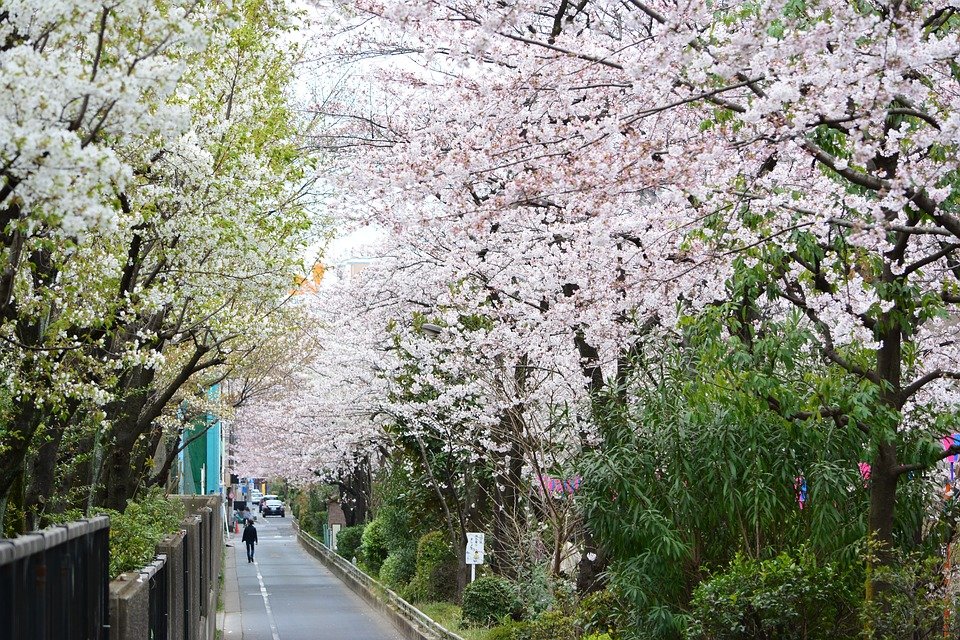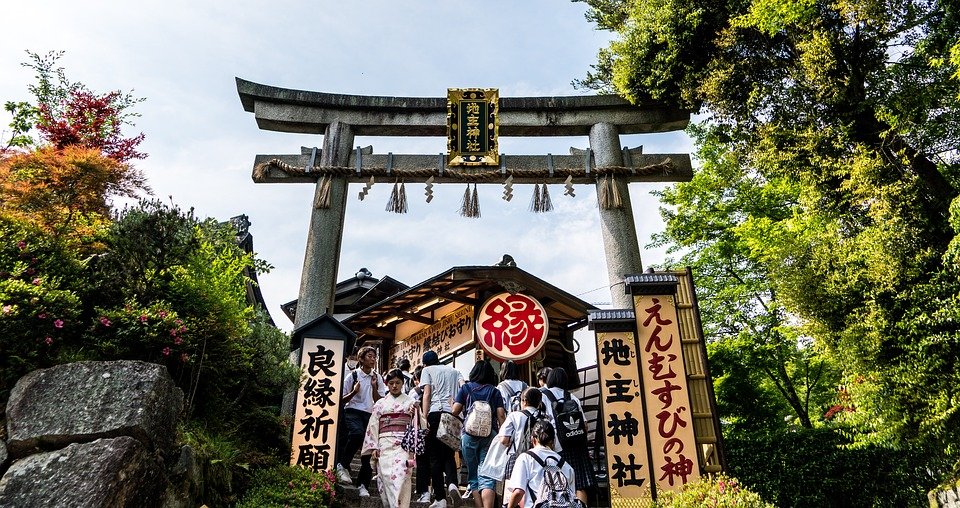5 Reasons Why You Should Volunteer Abroad in Japan

Japan’s beauty lies in its contrasts. It’s a country steeped in history and progressive technology, rice paper and bullet trains, ancient tradition and some of the nicest people you will ever meet in your travels.
My first visit to Japan was as a student, one year after the 2011 Tohoku tsunami. While I studied in the small town of Yamanakako, I had the opportunity to settle into life there, enjoy its idyllic location at the foot of Mt. Fuji in the spring, take Japanese lessons from kind old ladies at a community center in Fujiyoshida, and travel to Tokyo, Odawara, and other places with my fellow classmates. In a short amount of time, I was hooked and knew I would have to return.
In the autumn of 2016, I returned to Japan to serve as a volunteer staff member for Torchbearers Yamanakako. I provided guest services and cooked for visitors staying at the center in addition to planning and assisting with English conversation classes for the local community. I had the chance to give back and support the same community that had made my time in Japan so enjoyable.
If you’re interested in volunteering abroad, there are several reasons why Japan might be the perfect place for you.
Japan is Home to Fantastic Natural Sights

Japan has a natural landscape that is wildly diverse; its views and vistas range from the rugged, snowy mountains in the north to the sandy beaches of its southern islands.
If you’re an outdoors enthusiast, volunteering is a great way to combine a love of nature and practical care of the environment. Why not create your own outdoor adventure by giving time to preserve the natural beauty of Japan’s lakes, forests, or volcanoes? Join a work camp to maintain hiking trails, or lend your efforts to a team to protect wildlife and their natural habitats. Some programs even offer opportunities for volunteers to organize local activities that encourage conservation and sustainable practices.
Though they may influence the types of volunteer projects available, Japan’s seasons make visiting any time of the year a delight.
Springtime is renowned for its breathtaking blushes of cherry blossoms, but summer’s flourish of flowers, climbing vines, and trees is just as spectacular. In late autumn, forests of cypress, cedar, and maple burn vibrant gold, orange, and crimson, giving way only to the serene onset of winter, crisp and often deep with snow in the northern prefectures.
Many organizations feature placements in rural areas, providing volunteers the chance to experience nature in a country that has long valued it and works hard to help it thrive for generations to come.
Ancient History is Accessible in Japan

Both old and new are honored in Japanese culture, a trait made apparent in the preservation of historic buildings among the skyscrapers and train stations of modern cities like Tokyo and Kyoto. Ancient culture, too, is kept through the observation of historic and societal practices as well as the careful curation of history.
Several volunteer organizations offer cultural experiences as part of their programming, knowing that the sharing of culture is key in allowing participants to engage in global community. Schedules often include visits to museums, historical sites, and villages. The ultimate goal of these programs is to help visitors learn who the Japanese people were in the past and how they incorporate that into who they are becoming in the present.
As part of this culture exchange, volunteers are encouraged to get hands-on with history. Participants can try traditional trades and crafts using methods and knowledge gathered over centuries. Workshops invite anyone to try basket making, calligraphy, sushi crafting, and other time-honored skills. In some organizations, volunteers not only attend local festivals but help run them as well.
There's Delicious Cuisine to Enjoy in Japan

Japan is a fascinating destination for foodies. Tastes based in miso, bonito (fish flakes), egg, and shoyu make Japanese cuisine a treat. Menus and flavors change to reflect the seasons, incorporating local delicacies and what’s currently growing in the prefecture or community gardens.
As a volunteer, you have the opportunity to go behind the curtain and into the kitchen. You’ll learn how to make tasty, filling food that satisfies more than an empty stomach. Learn how to make rice balls with your homestay family, or join teams that cook for orphans, children in camps, guesthouses, and the homeless.
Volunteers are also welcomed into the fields for the agricultural experience of lifetime. Depopulation in agrarian areas means workers are needed to join local farmers in cultivating and harvesting crops. Whether it’s by planting seeds, tilling soil, or processing food, volunteers develop a knowledge of and appreciation for sustainable agriculture through teamwork and hands-on activity. In a rice paddy, a vegetable farm, or a tea field, you can help with work that has always been an important part of Japanese life, culture, and economy.
Innovative Technology is Born in Japan

Pioneering brands such as Nikon, Sony, Nissan, and Honda have their roots in Japan. On every street corner, new technology is being put into place to help facilitate everyday life. Volunteers with a passion for medical care, civic planning, or business may find kindred spirits working side-by-side with local people who put state-of-the-art technology to use in their communities.
Japan’s healthcare system is highly invested in high-tech advancements, seeking to improve treatments and even implement the use of robots in patient care. If you volunteer to work with hospital patients, physically disabled patients, or the elderly, you may come into contact with these developments and witness firsthand the latest in medical technology.
The corporate world also benefits from cutting-edge technology, which promotes connections through advancements in resources and communication. Volunteer programs that support local communities and nonprofit organizations in Japan are looking for workers with wide ranges of skills, from database management to translation work. If you are passionate about the exchange of ideas and how technology can build bridges to make that happen, there are organizations that need your expertise!
Japanese Hosts are Welcoming & Hospitable

Above all, Japanese people are the most compelling reason for why you should volunteer there. Wherever you go, you will find they are hospitable and friendly.
Courtesy and politeness are hallmarks of the culture, appearing in the care of a store clerk who wraps purchases to make them easy to carry and the small bow of someone entering an elevator. Much care is given to clothing, spaces, and even the presentation of food.
This thoughtfulness and awareness of others make it not only a pleasant place to volunteer but also one of the safest countries in the world.
If you’re worried about your knowledge of the Japanese language, spoken and written English is fairly common in Japan. Even if you encounter a language barrier, the Japanese people have a reputation for going above and beyond to make a visitor comfortable. It’s not uncommon for commuters to stop and give assistance to someone looking lost in a busy train station or for people walking their dogs to provide directions in a town built before the grid system. Some programs don’t require any Japanese language skills, though many of the people you’ll meet will be delighted if you use greetings or try some new words.
The Japanese people are eager to share their culture and teach others about their history. It is a fantastic place for volunteers -- those interested in gaining skills, studying history, or learning about people who may not be so different after all. Japan welcomes any who wish to try and to discover.
